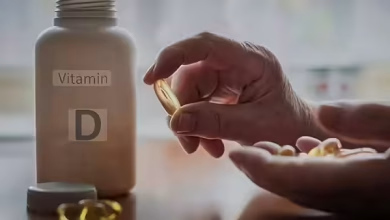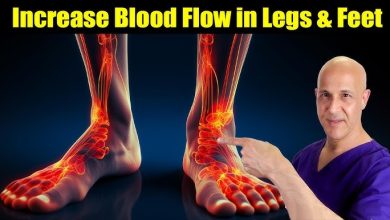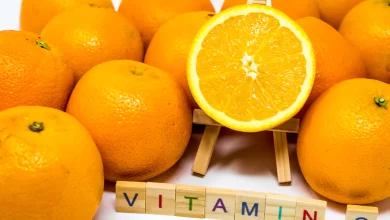Vitamin B Complex Benefits, Deficiency, Symptoms and Food Sources

Vitamin B complex is a group of vitamins that includes riboflavin, thiamine, niacin, pantothenic acid, B-6, folate, B-12, biotin and choline. Some of the benefits of vitamin B complex supplements include increased energy, improved or further stable moods, healthier skin, hair and eyes. The vitamins are necessary for proper nervous system and immune system function.
The benefits of vitamin B complex to the elderly consist of improved memory and mood. No matter what their age, most people notice an improvement in memory and ability to concentrate, as well as a reduced in depressed feelings and irritability.
B complex, once thought to be particular vitamins, is now top secret as 12 related water-soluble compounds.
- B1 (Thiamine)
- B2 (Riboflavin)
- B3 (niacin)
- B5 (pantothenic Acid)
- B6 (Pyridoxine)
- B7 (Biotin)
- B9 (Folic Acid, Folate)
- B12 (Cobalamin)
- Inositol
- Choline
- Lipoic acid
Benefits of Vitamin B Complex
Every member of the B-complex has a unique structure and performs unique functions in the human body. These vitamins are very important for:
- Good vision
- Proper functioning of liver
- Healthy skin
- B6 is necessary for amino acid metabolism
- B12 and folic acid facilitate cell division
- Lustrous hair
- Avoiding any mouth infections
- Folic acid, pyridoxine, and cobalamin work together to keep homocysteine levels low, as high homocysteine levels lead to heart disease.
- The breakdown of carbohydrates into glucose so as to provide energy to the body.
- The breakdown of fats and proteins to aid the normal functioning of the nervous system.
- Helps tone stomach muscles and those of the intestinal tract
- Stop certain birth defects such as cleft palate and neural tube defects, preserve healthy red blood cells, and may have a role in preventing certain types of cancer.
Sources of B complex
Even though common in many foods, natural sources high in B complex vitamins include meat and dairy products.
- Dark green, leafy vegetables are outstanding sources of folic acid (B9).
- Cobalamin (B12 – essential to healthy red blood cell count) can be derived only from animal sources. For this reason, strict vegetarians are encouraged toward B complex supplementation.
Unless various type of deficiency is present, or a person has a problem absorbing B complex vitamins, enough amounts of B complex vitamins can be obtained from diet alone. On the other hand, B complex supplements are used every day by millions looking to balance diet.
Vitamin B Deficiency
The Vitamin B requirement of different persons varies according to the intensity of activity and loss of nutrients in sweat and through urine, particularly after strenuous exercise. Lots of people involved in high-level sports or physical activity are unaware of the impact of vitamin B complex in their diet – a poor diet lacking in essential micro nutrients may have harsh detrimental effects on a person’s health and expert potential.
Some deficiency diseases may result from the lack of B-vitamins these include:
- Vitamin B1 deficiency causes beriberi, emotional disturbances, weight loss, swelling of bodily tissues, amnesia.
- Vitamin B2 (Riboflavin) deficiency causes cracks in the lips, high compassion to sunlight, inflammation of the tongue, syphilis.
- Vitamin B3 (Niacin) deficiency causes pellagra, mental confusion and even death.
- Vitamin B6 deficiency may lead to anaemia, dermatitis, high blood pressure.
- Vitamin B7 deficiency may lead to impaired growth and neurological disorders in kids.
- Folic acid deficiency in pregnant women can lead to birth defects.
- Vitamin B12 deficiency causes pernicious anaemia, memory loss and further cognitive diseases.
Symptoms of Vitamin B Complex Deficiency
- Mental problems
- Heart palpitations
Vitamin B complex deficiency shows symptoms such as:
- Rashes
- Indigestion
- Inability to concentrate
- Constant fatigue
- Insomnia
- Nervousness
- Tingling fingers and toes
Causes of Vitamin B Deficiency
- Increased eating of processed foods.
- Malnutrition
- Stress whether mental or physical.
- Drugs reduce vitamin B in the body.
- Refined sugar robs the body of its vitamin B stores.
- Cooking as vitamin B is killed or depleted in foods that are overcooked.
- Toxins – environmental pollution as well as individual care products reduce vitamin B complex
How Can This Vitamin Help Me?
Vitamin B complex is a grouping of some water soluble vitamins. The B complex group is made up of eight B vitamins namely, B1 (thiamine), B2 (riboflavin), B3 (niacin), B6 (pyridoxine), B12 (cobalamine), folic acid, panthothenic acid and biotin. All of these vitamins have a distinctive function to perform in the body. Vitamin B complex helps in the healthy functioning of the immune and nervous system. It helps in the production of red blood cells and stop anemia.
Food Sources of Vitamin B-Complex
Lots of the nutrients in B-complex vitamins are present in the same food source. They are abundant in liver and yeast, particularly in nutritional yeast. Other natural food sources of vitamin B include chili peppers, turkey, bananas, potatoes, lentils, tuna, and tempeh. Beer is also an excellent source of B vitamins due to its high yeast content, but this may not be true for filtered beer.
Your body needs to replenish B vitamins every day, so if you do not think you are getting enough of these vitamins from your regular diet; it may be time to consider taking supplements. Vitamin B supplements can be sold as B-complex vitamins or mixed together with further multivitamins.
Related Articles :
Benefits of Vitamin B Complex – Daily requirement of Vitamin B Complex
Understanding the Health Benefits of Vitamin B Complex
Vitamin B Complex Supplements for Energy to Get you During the Day
How does Vitamins B Complex Work on Skin and Hair?
An Overview of Vitamins B Complex and Vitamins Benefits & Side Effects
By : Natural Health News




